Empowering Educators: The Impact of Reverse Mentoring on Developing Scientific Mindset and Research Skills
Round 1
Reviewer 1 Report
Comments and Suggestions for AuthorsDear Authors,
I found your paper to be very interesting. I like the idea of reverse mentoring, and I think your paper can make a contribution to the field. There are a few things that I think need your attention before it is published. They are as follows:
Abstract
The first sentence mentions professional teachers. I believe that all teachers are professional. Do you mean school-based teacher educators or just those who use research to support their teaching? Is this an exclusive term? Consider avoiding it in the introduction as I think it needs to be qualified to support readers from other contexts.
Introduction
I think it is important to make it really clear that it is about teacher educators that are also teachers in schools who are the mentees of student teachers. It also seems that each mentee had many mentors. This is also a difficult concept to understand. Therefore, it is important for you to be very clear about the roles, to use consistent language throughout, not changing what you call the participants. This would mean that you do not jump in and out of teacher, teacher educator, mentee, or student teacher, mentor etc). For example, in this Introduction section you state:
School-based teacher educators also benefit from engaging in professional learning communities [e.g., 18-20]. The notion of reverse mentoring shows the potential of learning for the mentor, the school-based teacher educator [21].
This sets up confusion in the mind of the reader. I feel as if this confusion continues at other points in the paper.
Background
Line 83. I think the word should be encompass, not compass.
Method
While the study outlines the projects from the 9 mentees and the countries they come from, there is no mention of the number of mentors each mentee has. This is a strange situation, such as those with many masters. It would appear that the mentees had to deal with many mentors. Who did this work?
Minor amendment in Table 3.’ ‘Educators earning experience’ should be ‘Educators Learning Experience.”
Results
Conflicting use of terms such that educator ID4 noted. I believe it would be better to call this person Mentee ID4. This would help with the confusion between teacher educator and mentee.
This is my main concern with the paper. Making it very clear and easy to read for the reader. The reader does not want to have to go back and re-read parts to try to understand who is the mentor and who is the mentee and the various names used to describe each.
A word or two is missing in line 180.
Classroom students are included in the results but there is no mention of them in Method.
Discussion
In this section in Table 3 you outline 5 dimensions of reverse mentoring collaborations. Mentors and Mentees learning outcomes are not differentiated but rather jointly described for Deep as “Maximum learning outcomes for both mentors and mentees”. For the reader to replicate this study, it would be good to know what you think “maximum learning” looks like. I also think that maximum learning will look differently for Mentor and Mentee.
You go on to discuss the importance of communication and the need for positioning it along the spectrum outlined in Table 3. What not just include it? From my perspective it is not different from the 5 you have included.
I wish you well with the paper.
Author Response
Please see the attachment.
Author Response File: ![]() Author Response.docx
Author Response.docx
Reviewer 2 Report
Comments and Suggestions for AuthorsReverse mentoring is not a very common approach to developing the professional knowledge and practice of teachers and teacher educators. This kind of development has been referred to as 'empowering educators' in this submission. Clearly therefore, the authors/researchers in the research reported in this submission have demonstrated a high level of originality in their kind of research focus.
The design of the study and reporting and all other details as presented/reported are to generally acceptable level.
The research focus and implementation of steps in design ad conduct of the research including data collection, have resulted in useful findings; these have potential to impact practice both in school settings and in teacher education - initial and continuing, in very important ways.
Having read the manuscript keenly, I am able to recommend that the authors may only need to do a close proofreading to eliminate typos detected along the manuscript. One example easy to locate is of the word 'leaning', instead of 'learning', used with 'Mentees leaning outcomes' in Table 3 in p. 9.
Author Response
Dear Reviewer,
Thank you very much for your positive comments on our manuscript.
We have taken note of your suggestion to carefully proofread the manuscript to correct any errors. In addition to the typo where "leaning" was mistakenly used instead of "learning," we identified and corrected a few other errors, such as "participatns" instead of "participants," "compass" instead of "encompass," and "earning" instead of "learning."
Thank you again for your valuable feedback!
Reviewer 3 Report
Comments and Suggestions for AuthorsSee report document attached
Comments for author File: ![]() Comments.pdf
Comments.pdf
Author Response
Please see the attachment.
Author Response File: ![]() Author Response.docx
Author Response.docx




